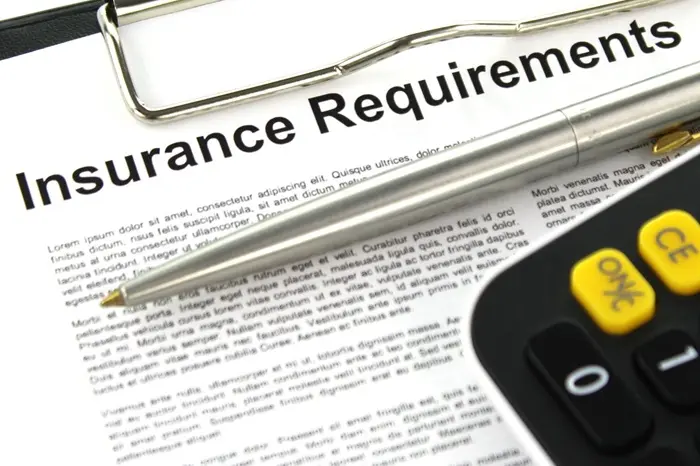Umbrella insurance is a type of liability coverage that goes beyond the limits of your standard insurance policies. It provides additional protection if you face a lawsuit or a claim that exceeds your home, auto, or other liability policies.
This coverage is designed to safeguard your assets and future earnings. Without it, a single lawsuit could put your savings, property, and even your income at risk.
Why You Might Need Umbrella Insurance
Accidents happen. If someone is injured on your property or you cause a major car accident, the resulting legal claims could far exceed your primary insurance limits.
Umbrella insurance steps in when your standard policies are exhausted. It covers legal fees, medical bills, and other damages. Without it, you could be personally responsible for paying the difference.
High-net-worth individuals are not the only ones who need this coverage. Even middle-income earners can benefit if they own property, have savings, or face potential liability risks.
Factors That Determine How Much Coverage You Need
1. Your Total Assets
The primary purpose of umbrella insurance is to protect your assets. This includes your home, savings, investments, and other valuable property.
A good rule is to have enough coverage to match your net worth. If you have significant assets, you may need a higher policy limit.
2. Potential Risks in Your Lifestyle
Certain activities increase your liability risks. If you own a swimming pool, host frequent gatherings, or have a teenage driver, you may face higher exposure to lawsuits.
Consider how your daily life could lead to accidents. The more risks you take, the more coverage you may need.
3. Existing Liability Coverage
Review your current insurance policies. Home and auto insurance typically include liability limits, but these may not be enough in a severe case.
Your umbrella policy should cover the gap between your existing liability limits and your potential exposure.
4. Future Earnings at Risk
Even if you don’t have substantial assets now, a lawsuit could target your future income. Courts may garnish wages to pay for damages.
If you have a high earning potential, umbrella insurance can protect your long-term financial stability.
Common Scenarios Where Umbrella Insurance Helps
Car Accidents with Severe Injuries
If you cause a multi-vehicle collision, medical bills and legal claims could exceed your auto policy. An umbrella policy covers the excess costs.
Property-Related Injuries
A guest slipping on your icy driveway could lead to a lawsuit. If their medical expenses and lost wages surpass your home insurance, umbrella coverage takes over.
Defamation or Libel Claims
Personal liability extends beyond physical harm. If you’re sued for defamation, umbrella insurance may cover legal defense costs.
Dog Bites or Pet-Related Incidents
Some breeds are excluded from standard home insurance. If your pet injures someone, umbrella insurance can provide additional protection.
How to Calculate the Right Amount of Coverage
Start by listing all your assets. Include real estate, savings, investments, and valuable personal property.
Next, assess your potential liabilities. Consider worst-case scenarios, such as a major accident or lawsuit.
A common recommendation is to have coverage equal to your net worth. Some experts suggest adding an extra layer if you have high-risk factors.
Consulting an insurance professional can help tailor the policy to your needs. They can evaluate your risks and recommend appropriate limits.
Cost of Umbrella Insurance
Umbrella insurance is relatively affordable compared to the protection it offers. Premiums depend on factors like coverage amount, location, and risk profile.
Most insurers require underlying liability policies (e.g., auto or home insurance) before issuing an umbrella policy. Increasing those base limits may be necessary.
Misconceptions About Umbrella Insurance
“Only the Wealthy Need It”
Even moderate earners can be sued for amounts exceeding their primary insurance. Protecting your home and savings is important at any income level.
“My Home and Auto Policies Are Enough”
Standard policies have limits. A single lawsuit can quickly deplete them, leaving you vulnerable.
“Umbrella Insurance Is Complicated”
The application process is straightforward. An agent can help you understand the terms and coverage options.
Steps to Purchase Umbrella Insurance
- Review your existing policies to understand current liability limits.
- Estimate your total assets and potential risks.
- Contact an insurance provider to discuss coverage options.
- Compare quotes and policy terms from multiple insurers.
- Select a policy that aligns with your needs and budget.
Conclusion
Umbrella insurance is a crucial safeguard against financial ruin. It provides an extra layer of protection when standard policies fall short.
To determine how much coverage you need, assess your assets, risks, and existing liability limits. Consulting an insurance professional ensures you make an informed decision.
While no one expects a lawsuit, being prepared can save you from devastating financial consequences. Investing in umbrella insurance is a smart way to protect your future.
Related Topics:
What Insurance Does an LLC Need?


































